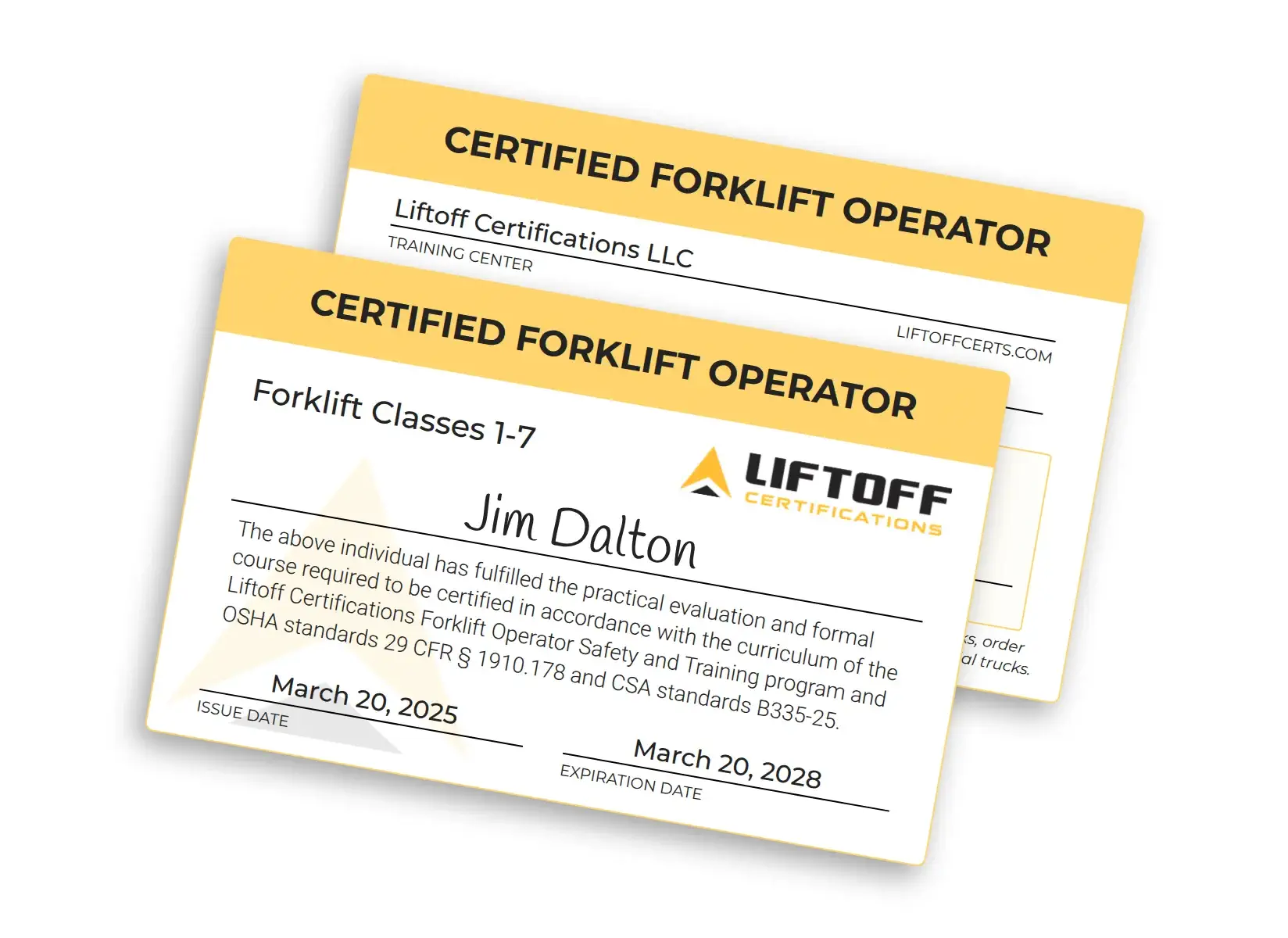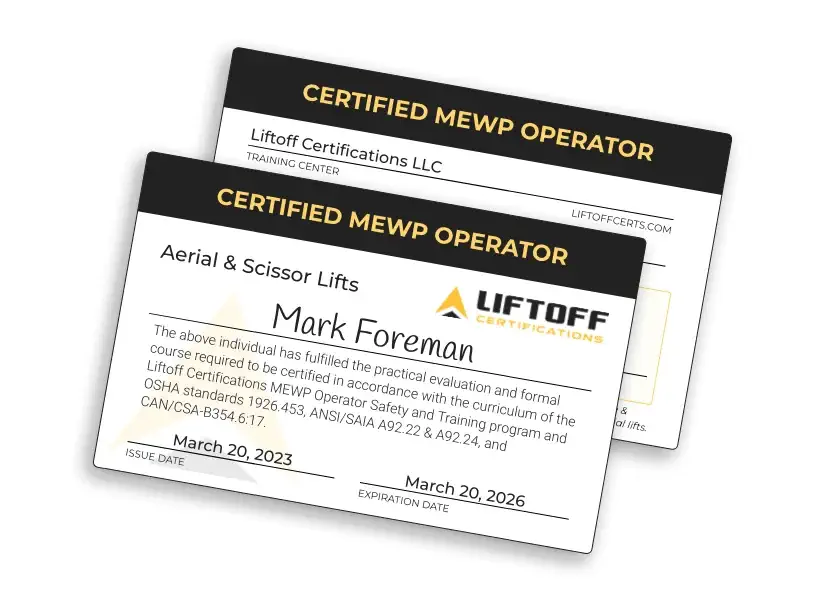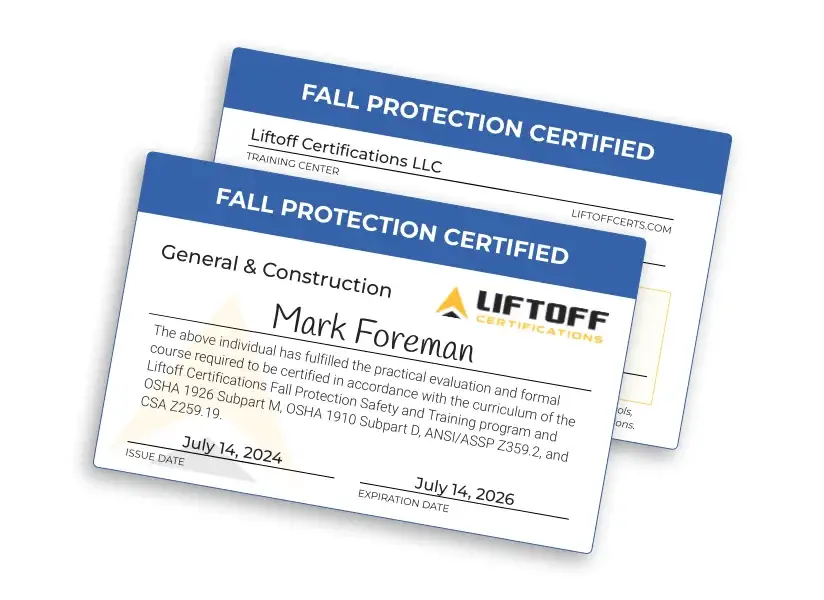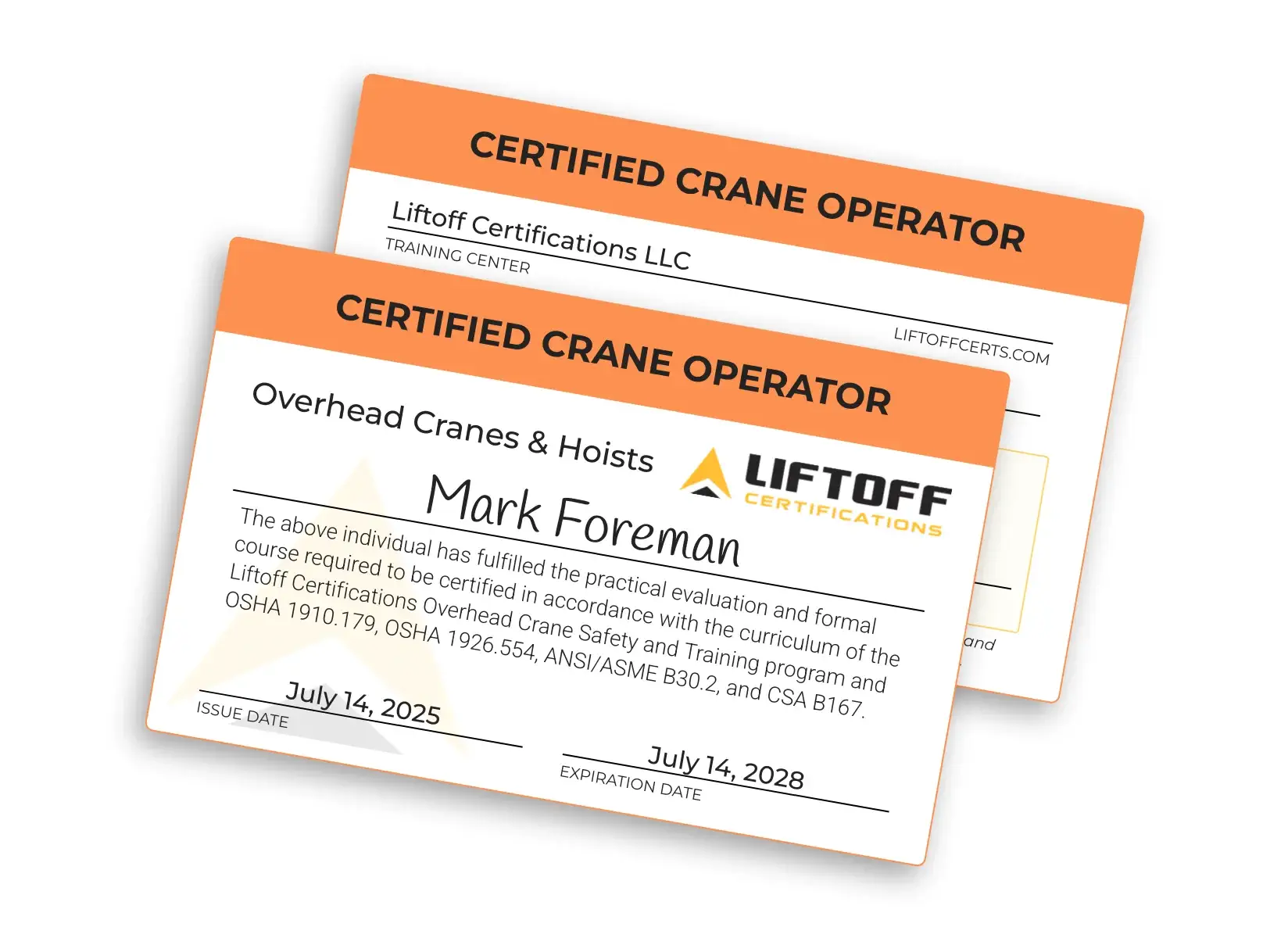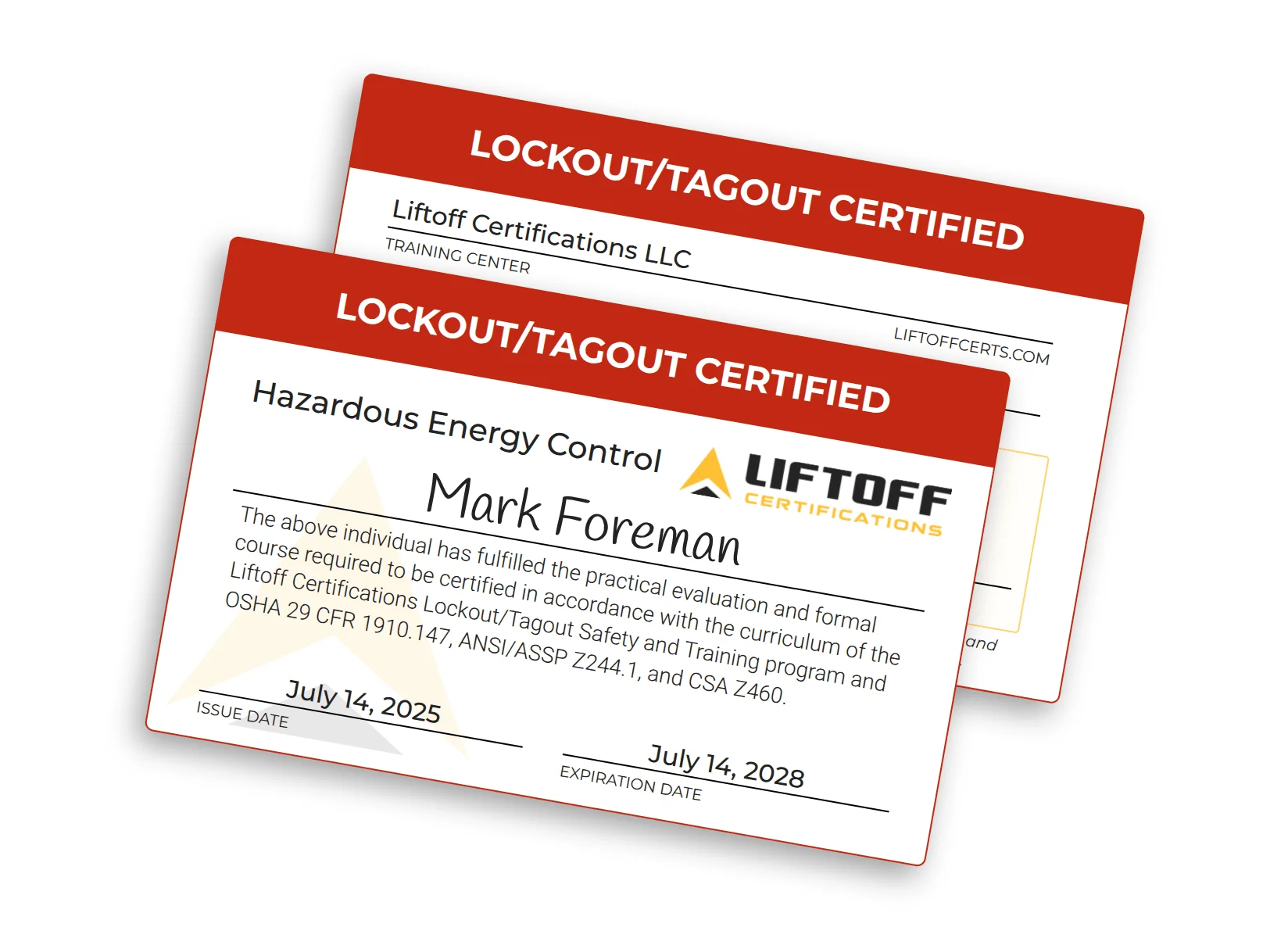What Are OSHA’s Requirements for Forklift Certifications?
OSHA, which stands for the Occupational Safety and Health Administration, is a government agency tasked with establishing standards and regulations for the workforce and enforcing those regulations.
Whether you’re driving a forklift in a warehouse, or welding steel on the third floor of a new high rise, OSHA has standards that provide safety and training guidance for your position at the company.
At Liftoff, we get questions all the time concerning OSHA. Here’s just a few we received this week:
We’re going to answer each of these questions below, starting with OSHA’s stance on providing Forklift Operator Certifications.
Can you get a forklift license through OSHA?
No. You cannot complete your forklift operator certification through OSHA.
OSHA relies on two players to help in providing certifications to prospective or current employees:
- Online Providers. The first step in receiving your forklift certification is to complete a course. For years, this was done in a multi-day class, but thanks to technological advancements, online certifying is the go-to.
- Employers / Trainers. After the online certification is complete, a trained Forklift Operator will guide the trainee through an in-person practical evaluation.
OSHA provides the standards and regulations, however it is up to the online providers to turn that into a structured online course.
What are OSHA’s standards?
OSHA’s standards are straightforward. We’ve posted them below directly from OSHA’s guidelines and have broken them down.
Here is the full text as it appears, which can also be referenced directly in standard 29 CFR 1910.178(l)(2):
The standard requires employers to develop and implement a training program based on the general principles of safe truck operation, the types of vehicle(s) being used in the workplace, the hazards of the workplace created by the use of the vehicle(s), and the general safety requirements of the OSHA standard. Trained operators must know how to do the job properly and do it safely as demonstrated by workplace evaluation. Formal (lecture, video, etc.) and practical (demonstration and practical exercises) training must be provided. Employers must also certify that each operator has received the training and evaluate each operator at least once every three years. Prior to operating the truck in the workplace, the employer must evaluate the operator’s performance and determine the operator to be competent to operate a powered industrial truck safely. Refresher training is needed whenever an operator demonstrates a deficiency in the safe operation of the truck. Training shall consist of a combination of formal instruction (e.g., lecture, discussion, interactive computer learning, video tape, written material), practical training (demonstrations performed by the trainer and practical exercises performed by the trainee), and evaluation of the operator’s performance in the workplace.
Let’s break that down in layman’s terms:
- The safety and training must be relevant for the job’s tasks and the workplace
- A formal training must be provided and completed
- A practical training must be provided and completed
- Employers must certify employees every three years or if there is an operator incident (such as an accident)
- Employers must evaluate the operator’s performance in the workplace
Remember that there’s a few reasons why OSHA establishes standards and requires a refresher of those standards every three years.
One of the main reasons is that standards change. Between advancements in technology in the workplace and on the powered trucks, to new methodologies, it’s important that employees are kept up-to-date with the latest standards.
Is Liftoff Certifications Legit?
Yes. Liftoff Certifications is 100% OSHA compliant and provides valid Forklift Operator Certifications.
One of the big misconceptions is that OSHA approves specific organizations to provide courses and training, and this is just false.
OSHA relies on partners like Liftoff Certifications to take the set of OSHA standards and prepare them in a way that’s easy to understand.
In order to be considered OSHA compliant, a certification provider must have a course that includes both truck related topics and workplace related topics.
Below are the topics required by OSHA, all of which are covered in depth in any Liftoff Certifications course. Your employer will also provide more details on the workplace specific topics, as those can differ from one employer to another.
Forklift Specific Topics
- Operating instructions, warnings, and precautions for the types of truck the operator will be authorized to operate.
- Differences between the truck and the automobile.
- Truck controls and instrumentation: where they are located, what they do, and how they work.
- Engine or motor operation.
- Steering and maneuvering.
- Visibility (including restrictions due to loading).
- Fork and attachment adaptation, operation, and use limitations.
- Vehicle capacity.
- Vehicle stability.
- Any vehicle inspection and maintenance that the operator will be required to perform.
- Refueling and/or charging and recharging of batteries.
- Operating limitations.
Workplace Specific Topics
- Surface conditions where the vehicle will be operated.
- Composition of loads to be carried and load stability.
- Load manipulation, stacking, and unstacking.
- Pedestrian traffic in areas where the vehicle will be operated.
- Narrow aisles and other restricted places where the vehicle will be operated.
- Hazardous (classified) locations where the vehicle will be operated.
- Ramps and other sloped surfaces that could affect the vehicle’s stability.
- Closed environments and other areas where insufficient ventilation or poor vehicle maintenance could cause a buildup of carbon monoxide or diesel exhaust.
- Other unique or potentially hazardous environmental conditions in the workplace that could affect safe operation.
Get OSHA Certified Online With Liftoff Certifications
If you are ready to give an online forklift certification or recertification a try, get signed up today for our Recertification Course or Certification Course.
We’ve got you covered with a 100% money back guarantee and we guarantee national acceptance of our OSHA certification.
